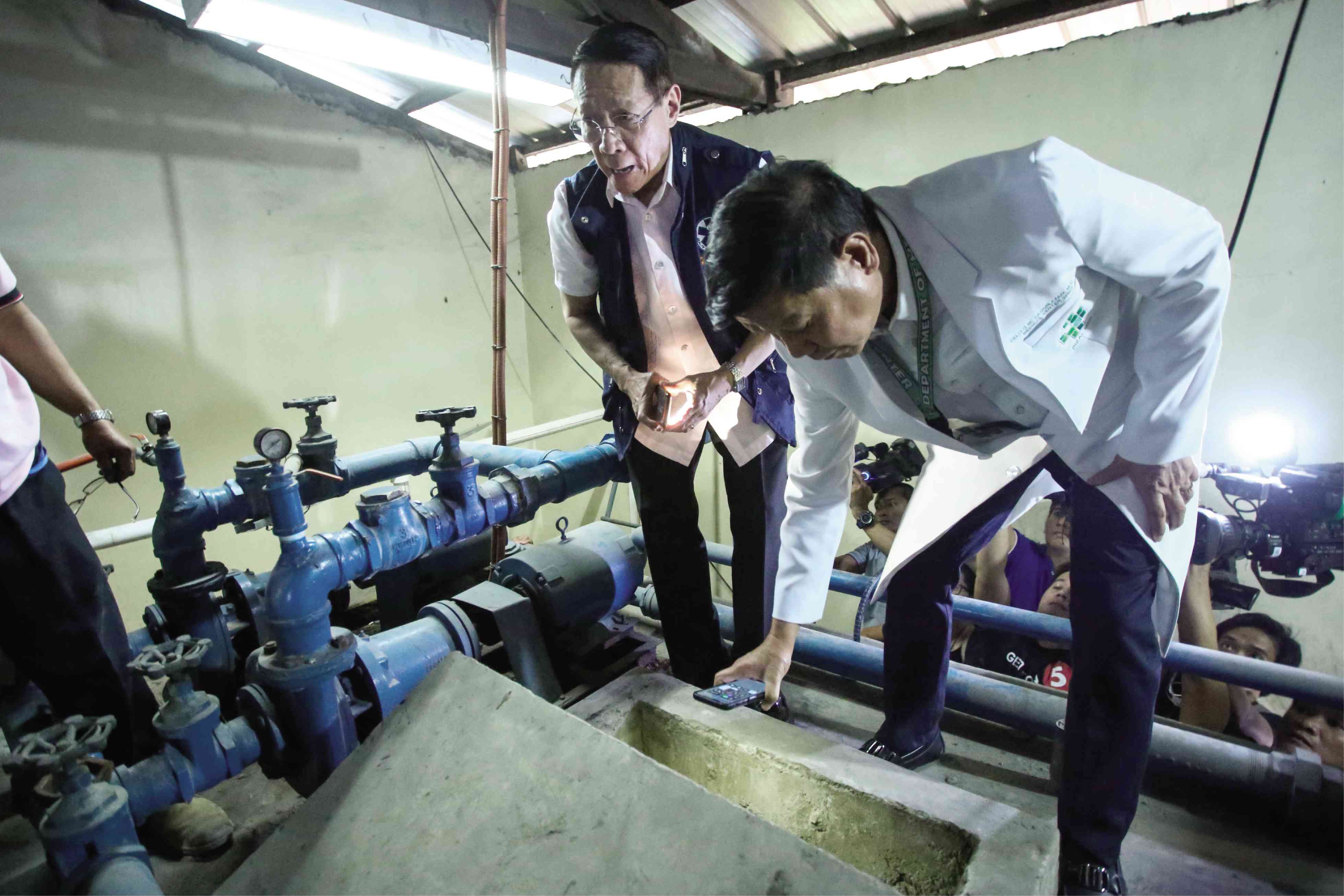DOH: Store water but avoid dengue

HEALTH INSPECTION Health Secretary Francisco Duque III and Dr. Relito Saquilayan inspect water tanks at Rizal Medical Center, one of several hospitals hit by the water supply crisis. -JAM STA. ROSA
Health Secretary Francisco Duque III appealed to Metro Manila and Rizal residents suffering from the water supply crisis to be cautious about how they store water to prevent a possible outbreak of dengue, which was already breaking records in terms of number of cases and deaths.
Duque on Friday said even a small amount of water, like that which fills a bottle cap, could serve as breeding ground for the dengue-carrying mosquito Aedes aegypti if left unattended.
“We appeal to those storing water to ensure that these are properly covered,” Duque said.
“We have to be conscious because even a little water can already serve as breeding ground for mosquitoes,” he said.
Data from the Epidemiology Bureau of the Department of Health (DOH) showed that as of March 2, there were already 40,614 cases of dengue nationwide, with 150 deaths.
Growing number
The figure was 68 percent higher compared to the same period last year when there were 24,231 cases and 118 deaths.
Most of the cases were recorded in Central Visayas (4,498), Central Luzon (4,253) and the National Capital Region (4,231).
Children age 5 to 9 composed a quarter of all reported dengue cases. The same age group accounted for nearly half of all dengue deaths (65) this year.
Health fears
Earlier, the DOH said that there was an unusual spike of dengue cases, especially in Central Visayas, due to rains there.
As Duque cautioned against dengue, he also reminded residents dependent on water rations to ensure that they boil their water before consuming it.
He also called on government hospitals hit by the water crisis to test the water being delivered to them.
“The last thing we want is to have an outbreak of diarrhea and gastroenteritis,” he said.
On Friday, Duque visited the National Center for Mental Health (NCMH) in Mandaluyong City to see how the institution is doing amid the crisis.
Luck
Duque said that unlike other government hospitals, NCMH was lucky enough to have 11 deep wells that can supply its daily water needs.
NCMH consumes an average of 170 cubic meters of water daily. Following the model of Rizal Medical Center in coping with the water shortage, Duque said that NCMH can make do with just 85 cu. m. daily.
The wells can supply NCMH with 115 cu. m. of water.